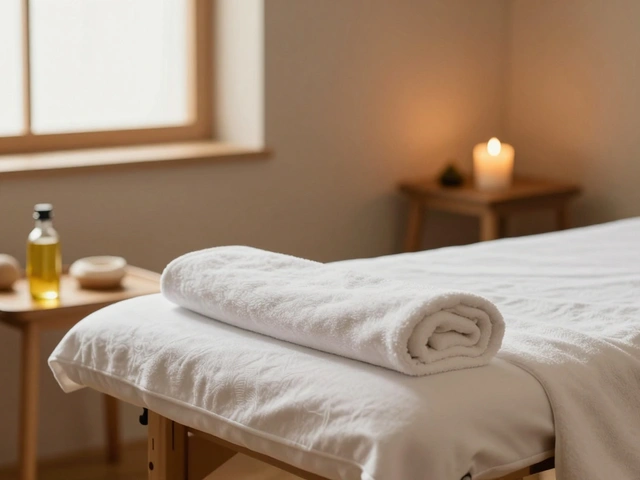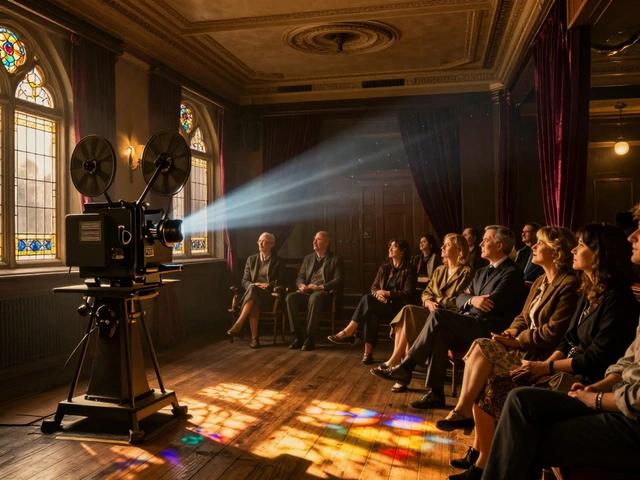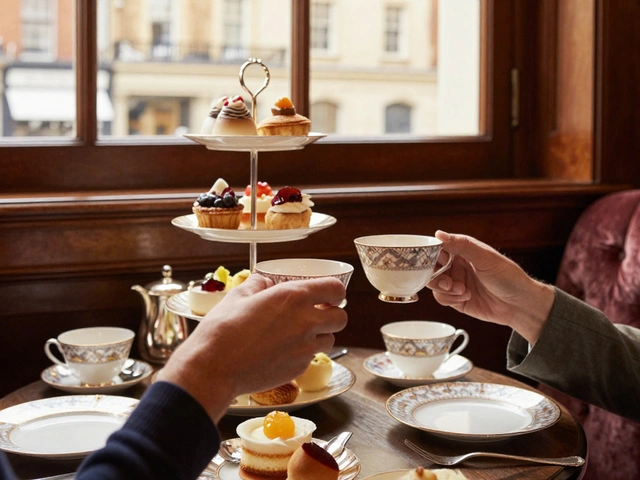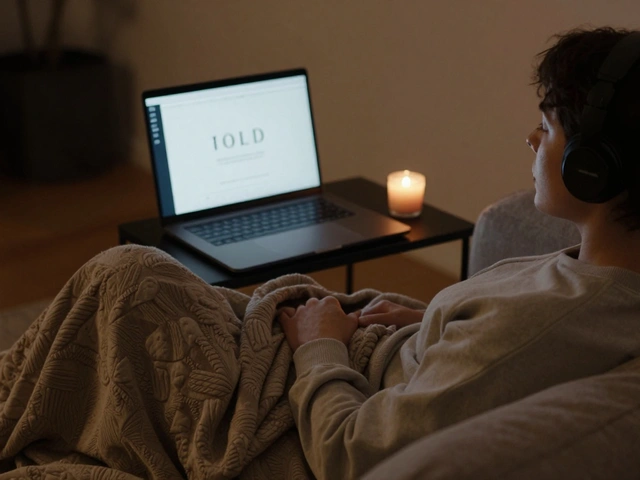London’s Most Exclusive Body Massages - Luxury Spa Guide
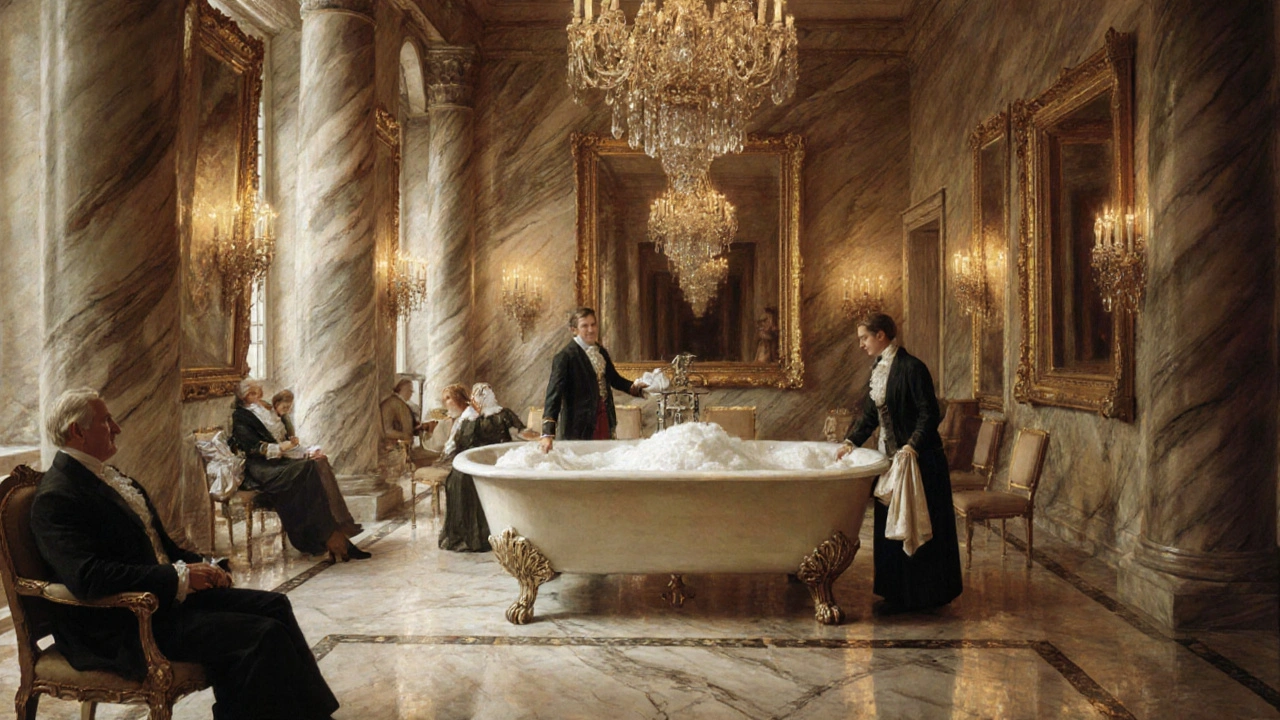
Indulge in Luxury: London’s Most Exclusive Body Massages
When you crave the ultimate relaxation escape, exclusive body massages London are the answer. Think of stepping into a private suite where the world fades, the lighting is low, and a master therapist tailors every stroke to your body’s whispers. This guide cuts through the hype and shows you exactly which spas deliver that five‑star experience, what makes each treatment unique, and how to book without the usual run‑around.
Understanding the Basics of Luxury Body Massage
Origins and History
Luxury body massage in London traces its roots to European aristocratic bathhouses of the 19th century, where nobles enjoyed private rubdowns after long voyages. Over time, these traditions merged with Asian techniques-Swedish, Thai, and Ayurvedic-creating a hybrid that today's elite spas call "luxury".
Core Principles or Components
At its core, a luxury massage blends three components:
- Highly trained therapists with credentials from recognized schools (e.g., AMTA, ITM).
- Premium oils, extracts, and heated stones sourced from sustainable farms.
- Personalized protocols based on a pre‑session consultation and often a brief health questionnaire.
How It Differs from Related Practices
Unlike a standard day‑spa treatment, exclusive massages focus on bespoke experiences, longer durations (90‑180 minutes), and ultra‑quiet environments. The table below highlights key differences.
| Aspect | Luxury Body Massage | Standard Spa Massage |
|---|---|---|
| Session Length | 90-180min | 30-60min |
| Therapist Expertise | Advanced certifications, often specialist training | Basic certification |
| Environment | Private suite, curated scent, soundproof | Shared rooms, communal ambience |
| Products Used | Organic, rare oils, heated stones, gold-infused creams | Standard oils, basic linens |
| Price Range | £200-£600+ | £50-£120 |
Who Can Benefit from Luxury Body Massage?
Anyone seeking deep relaxation can profit, but the biggest fans are high‑pressure professionals, frequent travelers, and wellness enthusiasts who value time‑saving, measurable stress reduction. Even athletes use these sessions for accelerated recovery.
Benefits of Luxury Body Massage for Mind and Body
Stress Reduction
Research from the British Association of Sports & Exercise Sciences shows that a 90‑minute deep‑tissue massage can lower cortisol levels by up to 30%. The combination of warm stones and rhythmic strokes triggers the parasympathetic nervous system, giving you that “after‑vacation” feeling instantly.
Enhanced Circulation and Detoxification
Heat‑based techniques, like hot‑stone or copper‑plate massage, dilate blood vessels, promoting better oxygen delivery and lymphatic drainage. Clients often report reduced swelling in the legs after a single session.
Emotional Well‑Being
Beyond physical perks, the sensory immersion-soft music, aromatherapy, candlelight-stimulates serotonin production. Many describe the experience as a mental reset that improves focus for the rest of the day.
Practical Applications
From better sleep to sharper concentration at work, the after‑effects ripple into daily life. The table below bundles the top benefits.
| Benefit | Description | Impact |
|---|---|---|
| Stress Relief | Reduces cortisol, calms mind | Improved mood, lower anxiety |
| Circulation Boost | Warms muscles, enhances blood flow | Faster recovery, less fatigue |
| Lymphatic Drainage | Facilitates toxin elimination | Reduced swelling, clearer skin |
| Sleep Quality | Triggers deep relaxation | Longer, more restorative sleep |
What to Expect When Booking an Exclusive Massage
Setting or Context
Most elite London spas (e.g., Aman Spa London is a celebrated sanctuary offering private treatment suites with floor‑to‑ceiling windows and river views. The ambience is deliberately muted-think soft piano, dim lighting, and plush linens. Expect a short concierge check‑in, a private changing area, and a consultation before the table is prepared.
Key Processes or Steps
- Consultation: Therapist asks about injuries, preferences, and desired outcome.
- Customization: Choice of oil (e.g., ylang‑ylang, sandalwood) and technique (e.g., hot stone, aromatherapy).
- Massage: Typically 90‑120 minutes of layered strokes, pressure adjustments, and occasional pauses for breathing exercises.
- Post‑Session: Light tea, a warm towel wrap, and a brief debrief on after‑care.
Customization Options
You can add extras like a 20‑minute scalp massage, a facial steam, or a private meditation capsule. Some spas let you choose the room’s scent profile-lavender for calm, citrus for uplift.
Communication and Preparation
Clear communication is vital. Tell your therapist about any medical conditions (e.g., hypertension, recent surgeries). Arrive 10 minutes early to fill out the health questionnaire and settle in.
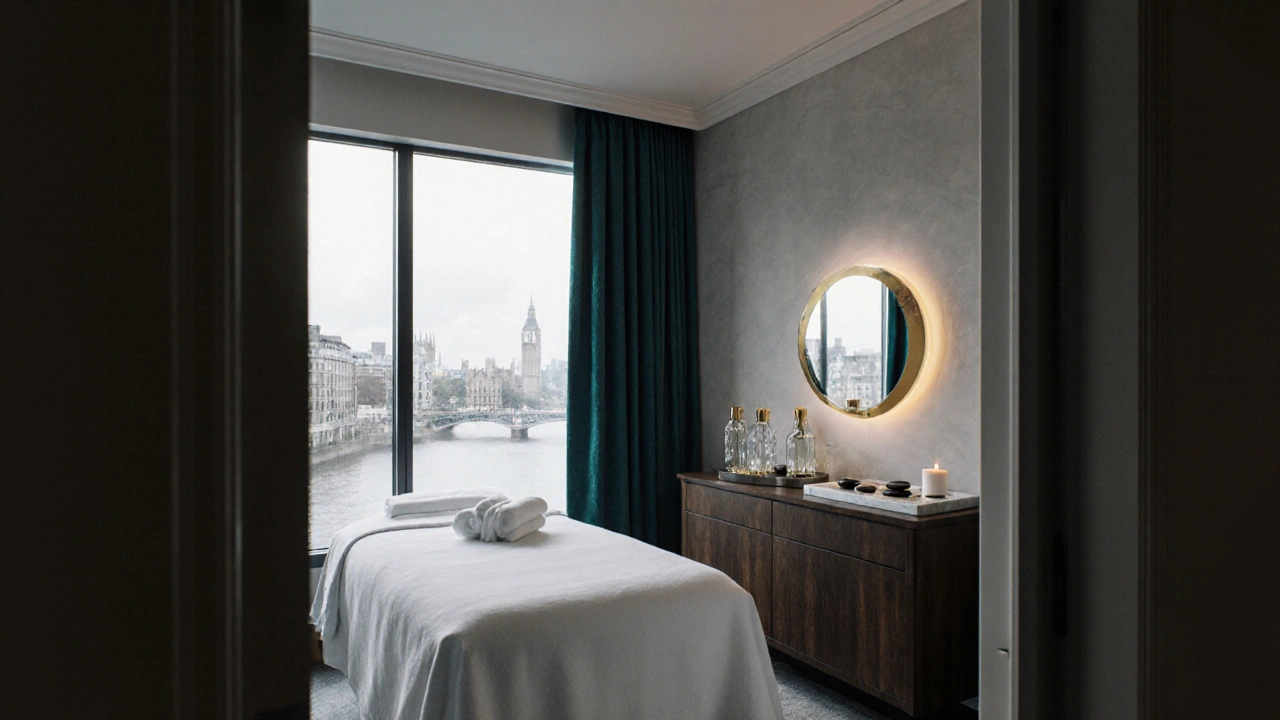
How to Book and Enjoy a Luxury Massage in London
Setting Up for Success
Plan ahead. Prime locations like Mayfair, Knightsbridge, and Covent Garden get booked weeks in advance, especially for weekend evenings. Use the spa’s online portal to view therapist bios and read verified client feedback.
Choosing the Right Therapist and Spa
Look for credentials such as a Level3 Diplomas in Sports Massage, membership in the UK Register of Massage Therapists (UKRMT), or specialized training in hot‑stone or lymphatic techniques. The The Spa at Mandarin Oriental boasts a roster of therapists with Michelin‑star level culinary background, ensuring the oils used are as refined as a five‑course meal.
Step‑by‑Step Booking Guide
- Visit the spa’s official website.
- Select “Luxury Body Massage” from the menu.
- Choose your preferred therapist (many sites provide short video introductions).
- Pick a date, time, and any add‑ons.
- Enter your health details and confirm payment.
- Receive an email with pre‑session instructions (e.g., no heavy meals 2hours before).
Tips for First‑Timers
Start with a 90‑minute session to gauge pressure tolerance. Bring a lightweight robe rather than bulky clothing. Hydrate well before and after-water helps flush out the toxins released during the massage.
FAQ: Common Questions About Exclusive Body Massage in London
What should I expect during a luxury body massage?
You’ll begin with a short consultation, then be led to a private suite where soft lighting and curated music set the tone. The therapist applies premium oils or heated stones, tailoring pressure to your feedback. Sessions last 90-180minutes and finish with a brief post‑massage debrief and often a cup of herbal tea.
How is a luxury massage different from a regular spa treatment?
The key differences lie in personalization, therapist expertise, environment, and product quality. Luxury massages offer longer, private sessions, use organic or rare oils, and often incorporate advanced techniques like hot‑stone or lymphatic drainage. The ambiance is designed for total privacy, unlike the shared rooms typical of standard spas.
Are there any health risks or contraindications?
People with open wounds, severe skin conditions, recent fractures, or uncontrolled hypertension should avoid intense deep‑tissue work. Always disclose medical history during the pre‑session questionnaire; a qualified therapist will adjust techniques or suggest a gentler option.
How far in advance should I book?
For top‑tier London spas, book at least two weeks ahead, especially for weekend evenings. If you’re targeting a specific therapist, reserve a month in advance. Many venues hold a short waiting list, so flexibility with dates can secure a spot sooner.
Can I combine a luxury massage with other treatments?
Absolutely. Most elite spas offer packages that pair a massage with a facial, body scrub, or private yoga session. Bundles often provide a 10‑15% discount and create a holistic wellness day.
Safety and Ethical Considerations
Choosing Qualified Practitioners
Verify credentials on the UKRMT register, ask for proof of continuous professional development, and read client testimonials. Reputable spas display therapist bios and training details on their websites.
Safety Practices
All linens should be freshly laundered, oils stored in sterilized bottles, and rooms cleaned between clients. Hand hygiene and double‑gloving (when using hot stones) are standard. The table below outlines essential safety steps.
| Practice | Purpose | Example |
|---|---|---|
| Therapist Credential Check | Ensures professional training | UKRMT registration number |
| Sanitized Equipment | Prevents infections | Sterilized hot stones |
| Client Health Screening | Avoids contraindications | Pre‑session questionnaire |
| Privacy Assurance | Maintains comfort | Sound‑proof suite |
Setting Boundaries
Discuss pressure preferences, areas to avoid, and any discomfort during the session. A professional therapist will pause immediately if you signal any issue.
Contraindications or Risks
Pregnant individuals should avoid deep abdominal pressure; those with varicose veins might experience discomfort with hot stones. When in doubt, request a lighter “relaxation” protocol.

Enhancing Your Luxury Massage Experience
Adding Complementary Practices
Pair the massage with a short mindfulness meditation, a guided breathwork session, or a post‑massage herbal tea ceremony. These extras amplify the release of endorphins and extend the calm.
Solo vs. Couple Sessions
While most luxury massages are solo, some spas offer side‑by‑side couples’ experiences. If you choose a duo, ensure both participants receive individualized attention rather than a shared treatment.
Using Props and Accessories
High‑quality eye masks, heated blankets, and aromatic diffusers can heighten sensory immersion. Many spas provide these amenities free of charge.
Regular Engagement for Sustainable Benefits
Schedule a monthly session to maintain lowered cortisol levels and consistent lymphatic flow. Frequent visits also let therapists track progress and fine‑tune techniques.
Finding Resources or Experts for Luxury Body Massage
Researching Qualified Professionals
Start with the spa’s official site, then check third‑party review platforms for verified client photos and detailed experience notes. Look for mentions of awards like “Best Luxury Spa London 2024”.
Online Guides and Communities
Forums such as LuxurySpaClub and Reddit’s r/Wellness offer insider tips on therapist selection, booking hacks, and post‑massage care routines.
Legal and Cultural Considerations
London’s health regulations require spas to hold a Class‑A premises licence and adhere to GDPR for client data. Ensure the venue displays its licence visibly.
Resources for Continued Learning
Books like *The Art of Therapeutic Touch* (2022) and video series from the British Association of Massage Therapists provide deeper insight into technique variations and self‑care practices.
Conclusion: Why Luxury Body Massage Is Worth Exploring
A Path to Lasting Well‑Being
Beyond instant relaxation, regular luxury massages support better sleep, improved circulation, and a calmer mind-benefits that compound over time.
Try It Mindfully
Book a session, communicate your needs, and treat the experience as a personal health investment. If you have any concerns, a qualified therapist will guide you toward the safest option.
Share Your Journey
Did a particular spa exceed expectations? Drop a comment below or follow our blog for more insider tips on London’s high‑end wellness scene.
Some links may be affiliate links, but all recommendations are based on research and quality.

